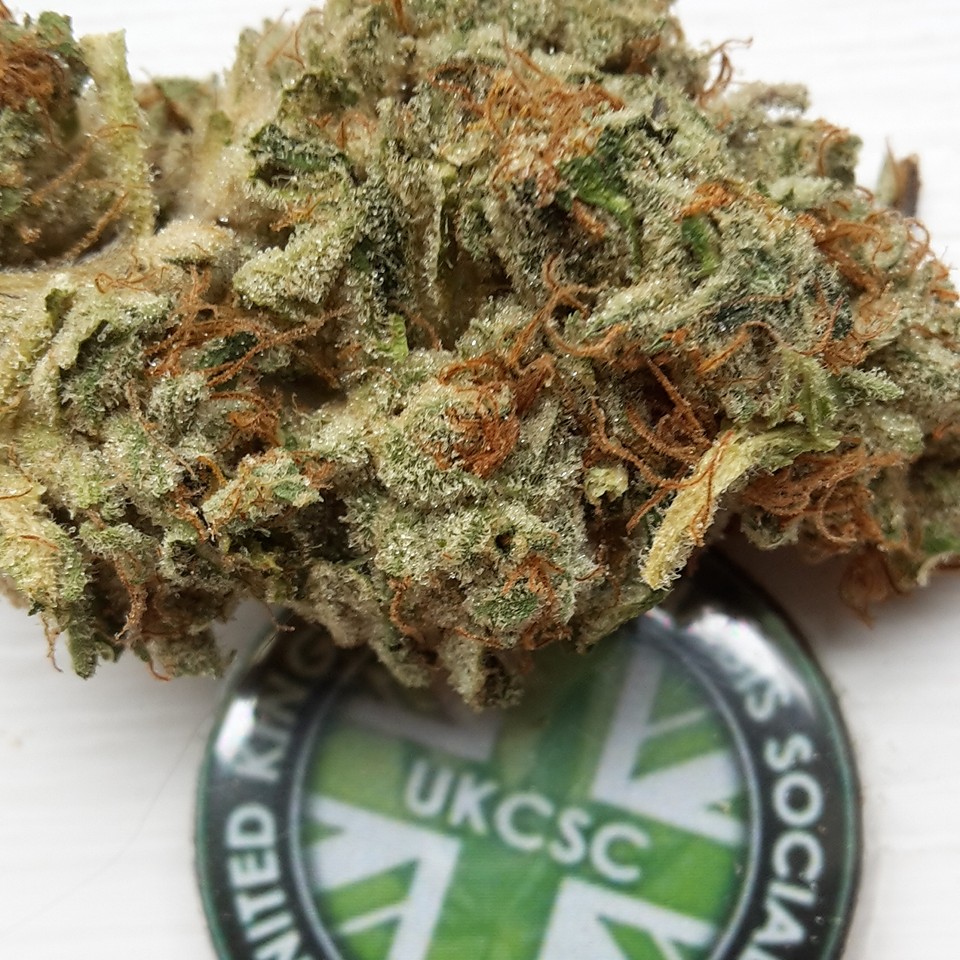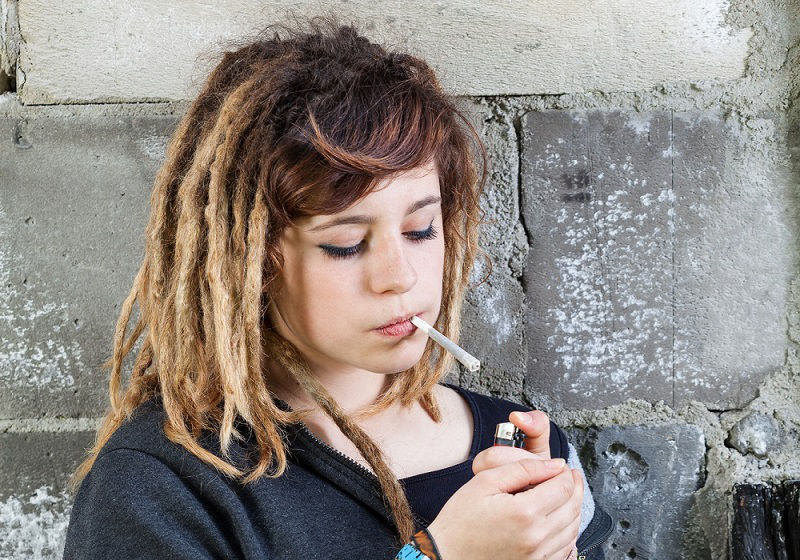A new report by VolteFace highlights the impact that cannabis policy is having on young people. The report’s focus is mainly on high strength THC cannabis that is purchased on the street and consumed by people who would be under the legal age if there were to be a legal cannabis market in the UK similar to that of Canada and a growing number of US states.
The Children’s Inquiry report aims to highlight the increase in harm that current drug policy is having on young people and looks at the damage that this can have on children’s lives as they try and progress into adulthood. It is worrying to see that children are not being offered youth diversion opportunities as widely as Government policy from 2008 states should be the case.
The not so cold truth is… if parents do not want to see their children selling cannabis at 15-17 years old then they should support a regulated cannabis market so their adult neighbour can run a licenced business instead of the local gang recruiting their kids.
No one wants to see children using any kind of drug – including alcohol – but we don’t let the alcohol market be controlled organised crime, we enforce strict punishment on those breaking the terms of their licence such as selling to a minor. As a result you don’t see bootleg beer being sold on the street corner. Using children to sell cannabis and other drugs has become the norm in inner city areas.
Sadly, it seems in an age where growing acceptance of personal adult cannabis use has reached a de facto point, children have become the low hanging fruit for law enforcement.
We are not locking up our children and loved ones to stop them smoking cigarettes which kill 9,000 people a year. We have public health campaigns instead which prove effective at reducing young people smoking and age verification checks at the point of sale.
Consenting adults should be able to buy cannabis from a safe, regulated outlet with products that are accurately labelled about their contents and how they were grown. The report does not mention foreign children that have been trafficked into the country by organised crime and exploited to grow cannabis in houses as slaves. Currently a large area of the market in inner cities, the Volte Face report indicates, uses children to supply cannabis, to adults as well as children.
Don’t Like The Current Market Setting? Change It!
Many adults in the 30+ range have reported that one of the reasons for joining a Cannabis Social Club was to avoid having to pick up from youths that are working for adult dealers who do not want to be caught carrying product. David Lammy, MP for Tottenham, conducted a street interview earlier this year that drew attention to the tactic used by organised crime groups.
 UK Cannabis Social Clubs is the regulatory body for Cannabis Social Clubs in the UK. We have developed a framework for clubs to operate under with advice and guidance on the legality of growing for personal use. We are age-regulated private member clubs for adults 18 and over, and you must be a friend of an existing member to join.
UK Cannabis Social Clubs is the regulatory body for Cannabis Social Clubs in the UK. We have developed a framework for clubs to operate under with advice and guidance on the legality of growing for personal use. We are age-regulated private member clubs for adults 18 and over, and you must be a friend of an existing member to join.
The reason we have stepped in where the Government has refused to is because there are vulnerable people – primarily youths – being failed by a flawed drugs policy. At the same time there is a criminal underworld that is happy to profit off off that vulnerability.
UK Cannabis Social Clubs also help separate cannabis from the rest of the drug market so sales of cannabis are not made in the same place as drugs that pose more serious risks and can be lethal.
If Potency Is The Problem, Label It
The black market seeks to make maximum profit off the strongest product regardless of the customer’s desired product. Cannabis Social Clubs produce the products the members request in the quantity they require. You don’t go to the supermarket and get offered whiskey when you want wine and you aren’t told to shut up and be happy with whatever you get by the person at the checkout. But this is the situation that most cannabis consumers are faced with. No label to inform you of the produced on or use by date, if it was organically grown, what the potency is and if it had any pesticides detected on it in the screening process.
Cannabis in Britain requires consumer safety standards, just like any other product, and adults that have joined the Cannabis Social Clubs support the recommendation that there should be testing facilities for product strength and consumer safety to be tested in. This should help screen out harmful risks caused by poor practices in production, and allow consumers to make an informed decision based on their desired experience.
Navigating Cannabis Education & Regulation
If people are still unaware of how to best navigate choosing the right cannabis variety for them then we need to make it more acceptable (and definitely less criminal) when it comes to discussing cannabis use, growing and offering advice to people that are looking for this information.
The UKCSCs have become a first point of contact for many seeking greater access to information on cannabis and it is not uncommon for us to speak to parents that have had concerns about their teenager’s cannabis use, as well as with adults who have had a negative experience. But with a wealth of user experience at the clubs it makes it much easier to draw on that knowledge when a case presents itself.
Adults have staggered regulation as a guidance of what kind of alcohol experience they may legally let their child can enjoy; drinking a glass of wine with a meal at the age of 16 is perfectly legal in a restaurant. Some parents have expressed they would prefer to be able to be there when their 16/17 year old has their first cannabis experience as they do not want them to go behind their back anyway and create a culture of distrust in their homes. This would also allow parents to control the type of cannabis they were being exposed to and give sensible advice from someone they trust over learning bad social habits from immature practices.
All of the problems that this report seemingly reveals are happening under the current policy of the Misuse of Drugs Act 1971. The majority of people in Britain do not misuse cannabis.
Criminalisation is the gateway to a criminal life. Legal jobs are a gateway to paying taxes and contributing towards society. Cannabis education is more effective if there is not a threat of criminalisation. Despite rising arrests, prosecutions and criminalisation of young people found in possession or supplying cannabis, it does not seem to be deterring them from wanting to access it, nor is the current policy actually preventing them from accessing it in the first place.
If the Misuse of Drugs Act 1971 is designed to curb the use and spread of drug use then it has clearly and utterly failed.
Criticisms
Tobacco Isn’t Mentioned Once
There is a culture of mixing cannabis with tobacco in the UK. The report does not look at or examine the relationship between tobacco and cannabis use by teenagers. Tobacco has a significant impact on brain chemistry and has been closely linked with mental health problems itself. Further investigation into teen use with non tobacco use may help understand if this has any impact at all as to why the UK has a higher prevalence of news reporting on this public health issue.
Spice Distinctions Are Unfairly Unseparated
The Street Lottery report heavily uses the term “cannabinoids” rather than cannabis indicating that this dataset may well include synthetic cannabinoids. Looking at the impact of the Psychoactive Substances Act we see that Spice is more widely available on the streets to buy and is in totally unregulated strengths whereas before it was sold to those who had ID and there were sellers that avoided purchasing increased strength products.
Without a clear distinction between the Synthetic Cannabinoid Receptor Agonists (SCRA) and natural cannabis, incidences of psychotic-like behaviours cannot be accurately treated. This creates problems for healthcare professionals treating admissions, as well as public health programmes to warn people correctly of the dangers of each, which are very different acting compounds.
The years 2013-2016 saw a huge increase in the Spice/SCRA market and this has not been suggested as a factor in the findings. Most Spice users report that they would use natural cannabis if it were legal and recently, rehab charity executives have informed us at the UK Cannabis Social Clubs that some Spice users are switching to Heroin as it is seen as the less dangerous substance to use.
Mobile Phones & Social Media
 While the report mentions that children have greater access to mobile phones and therefore social media networks where they can be exposed to online cannabis dealers who do not check ID, the report does not take into consideration that social media is being blamed for increasing children’s mental health problems. 94.8 per cent of 15 year olds in the UK used social media before or after school in 2015 and mental health incidences doubled in those who are on social media sites for more than three hours a day in that age group.
While the report mentions that children have greater access to mobile phones and therefore social media networks where they can be exposed to online cannabis dealers who do not check ID, the report does not take into consideration that social media is being blamed for increasing children’s mental health problems. 94.8 per cent of 15 year olds in the UK used social media before or after school in 2015 and mental health incidences doubled in those who are on social media sites for more than three hours a day in that age group.
Calling For More Kids To Be Diagnosed Could Also Be Dangerous
Giving a child a criminal record is one thing that can seriously hinder their chances in the future. But it can also be dangerous to overdiagnose children for the same reasons. Not everyone agrees with all kinds of cannabis and some strains may be more likely to trigger a negative reaction in some people.
Follow the UKCSC on social media: Facebook – Instagram – Twitter – Reddit




